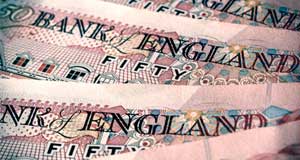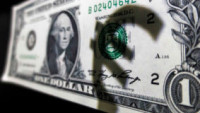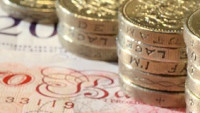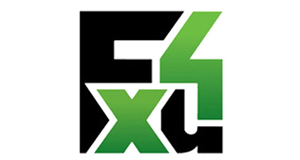 USD: Consolidation or base-building?
USD: Consolidation or base-building?
There is quite a popular view out there that with 100bp of Fed cuts priced by the end of this year and a terminal rate already priced at 3.00%, the dollar does not need to fall much further. Equally, however, we do not see the need for the dollar to rally too much either. And for the time being we are treating this week’s dollar price action as bearish consolidation after the relatively sharp 5% fall since the start of July. What gives us some comfort that this is a broad dollar decline is the fact that the Asian FX laggards – including the Korean won – are all participating in the move. Even the Korean options market is showing the one-month risk reversal in favour of Korean won call options – something that rarely has been seen since 2007. Whether this represents investors rebalancing underweight Asian portfolios or Asian exporters catching up on some overdue dollar hedging remains to be seen.
As we have discussed recently, we will probably need to get some more downside surprises on US activity data to get the dollar bear trend moving again. That may not be the case where the calendar only shows revisions to second-quarter GDP data and the weekly initial claims. The latter seems resolutely stuck near the 235,000 area as broad job lay-offs are yet to emerge. Yet these should rise at some point and Chair Powell’s speech last Friday did sound a little nervous as to the speed with which the labour market was deteriorating.
Expect DXY to stay relatively range-bound, and only a move above the 101.60/65 area would suggest we are seeing something more than bearish consolidation.
EUR: National CPIs in focus
The euro has had a soft week and it is not entirely clear why. The ECB’s trade-weighted euro is off about 0.3% so far this week. Perhaps there is some month-end portfolio rebalancing underway? Two events are on the eurozone agenda today. The first are the releases of the August flash CPI data for Germany, Spain and Belgium. The Eurozone figure will be released tomorrow. Today’s flash CPI releases are all expected to show headline and core inflation falling further – providing no impediment to further ECB easing. This brings us to the second event, which is a speech from ECB Chief Economist Philip Lane, speaking at 1115CET. Markets currently price 65bp of ECB easing, which seems a little too aggressive to us – yet we doubt ECB’s Lane will feel the need to correct that right now.
EUR/USD has so far held support at 1.1100. We see a scenario where 1.1080/1100 does hold before EUR/USD moves higher still. That seems unlikely today, but the best chance of that happening is probably a higher-than-expected US jobless claims figure at 1430CET today.
Elsewhere, EUR/CHF is staying very soft and USD/CHF is continuing to plumb new lows. We are not far away from the December 2023 low at 0.8333. We have no evidence for this, but we suspect that the Swiss National Bank (SNB) intervenes in both USD/CHF as well as EUR/CHF. Watch out for any spikes in USD/CHF should it start to trade under 0.84. Do read more about our EUR/CHF views here.
GBP: Market considers the budget impact
The Bank of England’s broad sterling index is back to challenge the July high at around 84.65. These mark the highest levels since the Brexit vote in June 2016. Driving sterling higher has been the malaise both in the eurozone and now emerging in the US, too, combined with the BoE’s reticence to signal a full-blooded easing cycle. Warmer relations with Europe might have helped, but this is harder to quantify.
Very much in focus now is UK Chancellor Reeves’ first budget at the end of October. There is much speculation over £20bn of tax increases coming through – worth around 0.7% of GDP. However, this may not represent fiscal tightening since she will be using the money to address the real-terms cut in public spending under the previous Conservative government. Public sector pay rises alone may be worth as much as £10bn.
For sterling, that may mean this is a fiscally neutral budget and one that could see the pound continue to outperform – especially against the dollar. 1.3300/3330 may be the next short-term target for GBP/USD, with support being found at 1.3100/3120.
SEK: Time for stabilisation?
Sweden released GDP figures this morning, which confirmed expectations for a QoQ contraction in the second quarter. The print was -0.3% QoQ above the consensus -0.8%. A grim growth story in Sweden has been one of the key drivers of the Riksbank’s dovishness. When adding a loosening jobs market and disinflation, there are few doubts that more easing is on the way.
The question is, at this point, whether the Riksbank will cut two or three more times this year. Markets are pricing in easing in excess of 80bp over the last three meetings of 2024, which suggests there is some moderate speculation for a 50bp move too. That appears too dovish to us, considering Swedish rates have already been trimmed to 3.5%, and a potential slower-than-expected easing by the ECB may be a concern for the Riksbank.
Some hawkish repricing can help SEK in September, but the krona has been primarily responsive to external inputs, and conditions may not turn much more accommodative for high-beta currencies than they are now. Markets may price in more Fed easing if they see higher US recession risks, which may, however, lead to more stock market instability and ultimately hit a highly risk-sensitive currency like SEK. Now that we are close to the 11.30 target we had set about a month ago for EUR/SEK, we think some short-term stabilisation looks more likely than another big directional move.













